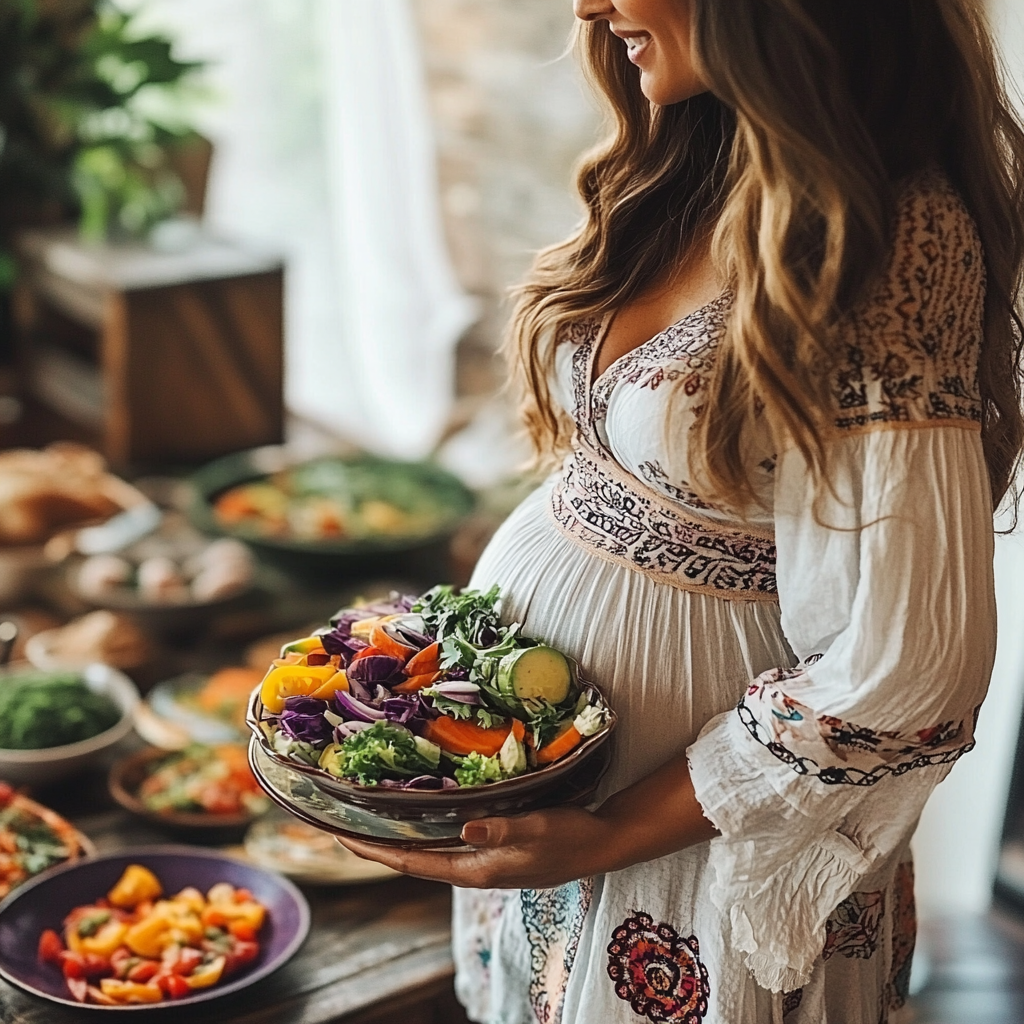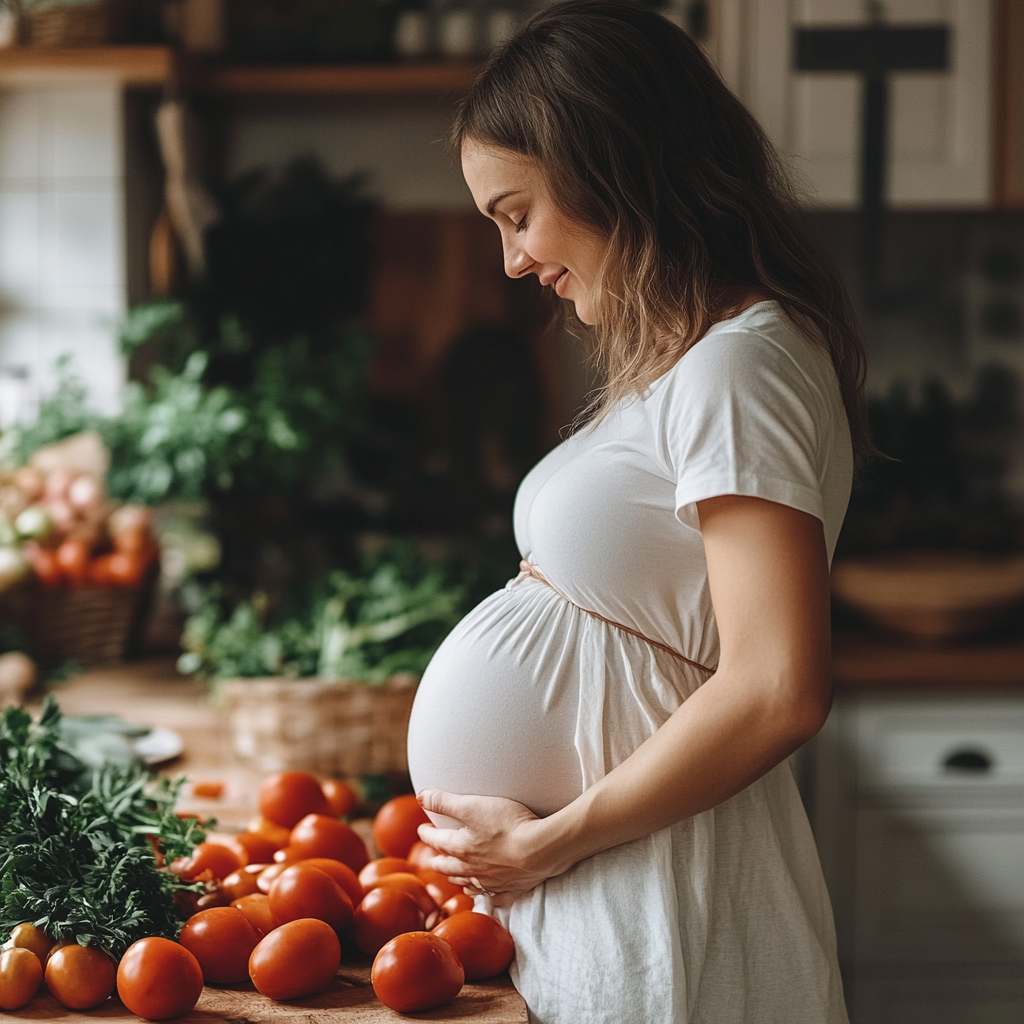Pregnancy is an exciting time, but it also comes with a lot of questions about what you should and shouldn’t eat. Eating a well-balanced diet is key to supporting the health of both you and your growing baby. Certain foods are packed with essential nutrients like folate, iron, calcium, and protein, all of which play a crucial role in fetal development. In this article, we’ll explore 13 nutrient-rich foods that you should incorporate into your diet while pregnant.
Introduction to Pregnancy Nutrition
Eating well during pregnancy doesn’t have to be complicated, but it does require paying attention to certain nutrients. Your body undergoes many changes to support the baby, and these changes often increase your nutritional needs. While it’s important to eat a variety of foods, focusing on certain nutrient-dense foods can provide the key vitamins and minerals necessary for your baby’s development.
In this guide, we’ll explore 13 superfoods that should be part of every pregnant woman’s diet, helping you and your baby thrive throughout pregnancy.
Why Nutrition is Important During Pregnancy
Nutritional Needs of a Pregnant Woman
When you’re pregnant, your body needs extra calories, but more importantly, it needs the right nutrients. Key nutrients such as folate, iron, calcium, and omega-3 fatty acids are crucial for fetal development and the overall health of both mother and baby. Eating nutrient-rich foods ensures that you’re getting the vitamins and minerals you need without overloading on empty calories.
Essential Nutrients for Fetal Development
- Folate: Prevents neural tube defects in the baby.
- Iron: Supports increased blood volume and helps prevent anemia.
- Calcium: Vital for developing strong bones and teeth.
- Protein: Essential for the growth of baby’s tissues and organs.
Now, let’s dive into the 13 foods that can help meet these needs during pregnancy.
1. Leafy Greens
Leafy green vegetables like spinach, kale, and Swiss chard are pregnancy powerhouses. They are loaded with folate, a B vitamin that helps prevent birth defects of the brain and spine (neural tube defects). Leafy greens also provide a good source of iron, which is important for supporting your body’s increased blood production during pregnancy.
Examples of Leafy Greens:
- Spinach
- Kale
- Swiss Chard
- Collard Greens
2. Eggs
Eggs are a complete source of protein, which is essential for your baby’s growth and development. They are also rich in choline, a lesser-known but critical nutrient that helps develop your baby’s brain and spinal cord. Low choline intake has been linked to neural tube defects, so eggs are an easy and nutritious way to help meet your daily needs.
3. Dairy Products
Pregnant women need extra calcium to support the development of their baby’s bones and teeth. Dairy products like milk, cheese, and yogurt are excellent sources of calcium, as well as protein and vitamin D. These nutrients play a crucial role in supporting bone health and overall growth.
Dairy Foods to Include:
- Milk
- Cheese
- Yogurt
4. Salmon
Omega-3 fatty acids are important for the development of your baby’s brain and eyes. Salmon is an excellent source of DHA, a type of omega-3 fatty acid that is particularly beneficial during pregnancy. Make sure to follow guidelines for fish consumption to avoid high-mercury fish, but salmon is generally considered a safe and nutritious choice.

Safe Fish Consumption During Pregnancy:
- Stick to 2-3 servings of low-mercury fish like salmon, sardines, or trout each week.
5. Legumes
Legumes such as lentils, beans, and chickpeas are rich in fiber and folate, both essential for a healthy pregnancy. Folate is vital in preventing birth defects, while fiber helps combat constipation, a common issue during pregnancy.
Examples of Legumes:
- Lentils
- Black beans
- Chickpeas
6. Sweet Potatoes
Sweet potatoes are high in beta-carotene, which your body converts into vitamin A—a nutrient critical for the development of your baby’s eyes, skin, and immune system. This nutrient-packed vegetable is also a great source of fiber, which can help keep your digestion regular throughout pregnancy.
7. Lean Meat
Lean meats such as chicken, turkey, and beef are packed with iron and protein. Iron is essential for making extra blood during pregnancy, which supports oxygen delivery to your baby. Eating enough iron can also help prevent anemia, a condition common during pregnancy.
8. Whole Grains
Whole grains are an excellent source of fiber, B vitamins, and complex carbohydrates, providing sustained energy throughout the day. Whole grains also provide iron and magnesium, both important for your baby’s growth and development.
Whole Grains to Include:
- Quinoa
- Oats
- Brown Rice
9. Avocados
Avocados are a superfood for pregnant women because they are rich in healthy fats and folate. Healthy fats are essential for building your baby’s skin, brain, and tissues. Plus, avocados contain potassium, which can help relieve leg cramps often experienced during pregnancy.
10. Berries
Berries like blueberries, strawberries, and raspberries are packed with antioxidants and vitamin C, which helps your body absorb iron more efficiently. They’re also hydrating and low in calories, making them a great snack or addition to smoothies.
Best Berries to Eat:
- Blueberries
- Strawberries
- Raspberries
11. Nuts and Seeds
Nuts and seeds are nutrient-dense and provide healthy fats, protein, and magnesium—a mineral that plays an important role in bone health and preventing premature contractions. Chia seeds, walnuts, and almonds are particularly beneficial.
Best Nuts and Seeds:
- Almonds
- Walnuts
- Chia Seeds
12. Oranges and Citrus Fruits
Citrus fruits like oranges, lemons, and grapefruits are high in vitamin C, which not only boosts your immune system but also helps your body absorb more iron from other foods. They’re also hydrating, which is important since you need extra fluids during pregnancy.
Citrus Fruits to Include:
- Oranges
- Grapefruits
- Lemons
13. Greek Yogurt
Greek yogurt is high in protein and calcium. It also contains probiotics, which are beneficial bacteria that support your gut health—something that becomes increasingly important during pregnancy. The extra calcium in Greek yogurt also helps with your baby’s bone development.
Conclusion
Eating a variety of nutritious foods during pregnancy is one of the best things you can do for your baby’s growth and your own well-being. By incorporating these 13 foods into your diet, you’ll ensure that you’re getting a wide range of essential nutrients like protein, folate, calcium, and healthy fats. Always consult with your healthcare provider about your diet, but rest assured that these foods are among the best choices for a healthy pregnancy.
